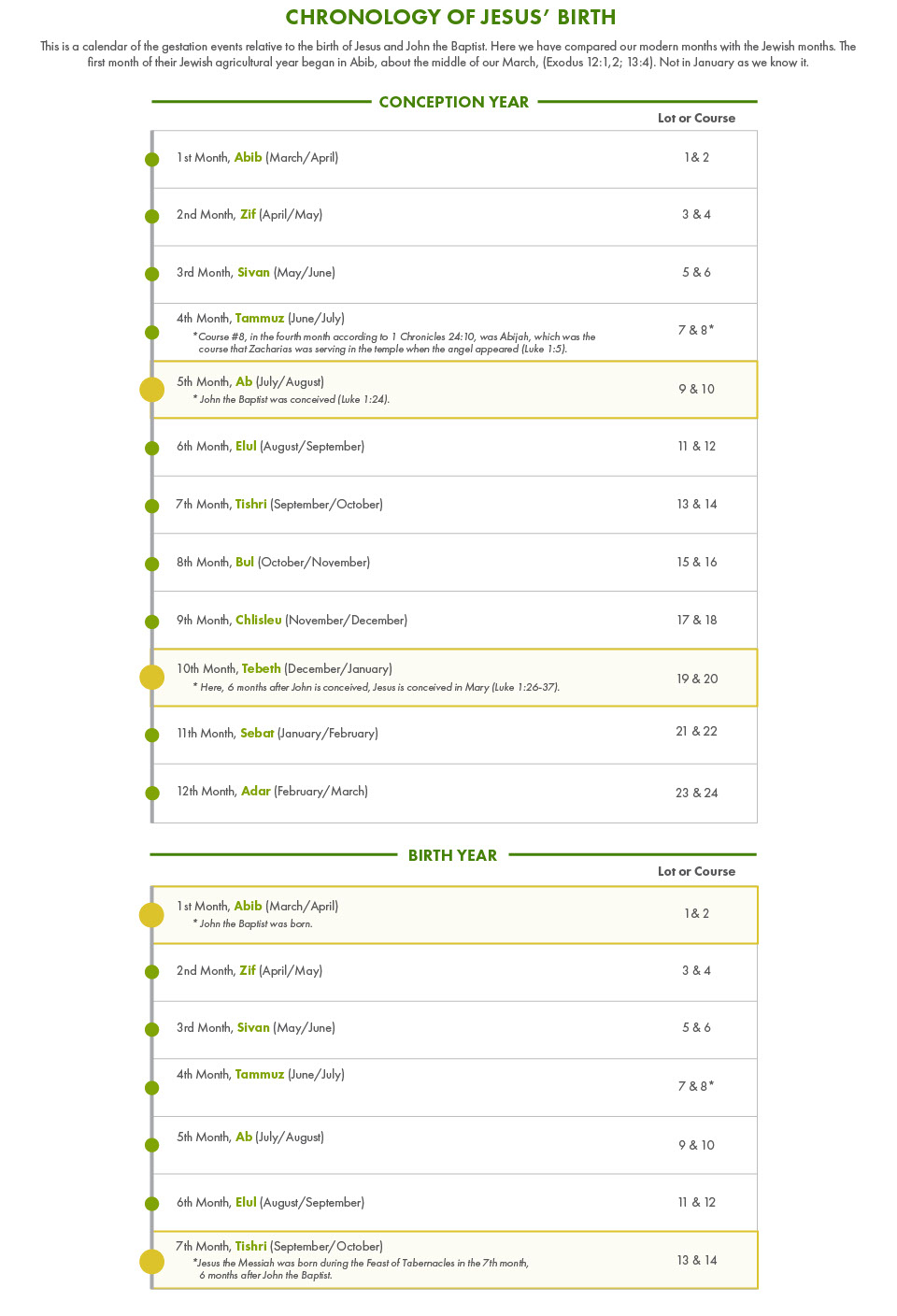
Feast of Tabernacles
Messiah's Coming
by: Robert (Bob) Somerville
A TIME TO BE BORN
Most scholars agree that Jesus was thirty-three and one-half years old when He died at Passover (Abib). He, therefore, had a birthday six months earlier in the month of Tishri (September-October). This is the month in which the Feast of Tabernacles is observed. TABERNACLES - His Birthday Celebration!
Jesus Christ, Himself, once uttered a very profound, yet simple statement pertaining to the worship of our Heavenly Father in St. John 4:23,24: "But the hour cometh, and now is, when the true worshipers shall worship the father in spirit and in truth: for the father seeketh such to worship him. God is a spirit: and they that worship him must worship him in spirit and in truth."
No sincere believer would deny that part of our worship of God should be in honoring the birth of His Son, our Savior, the Lord Jesus Christ. This glorious event, to all believers, is certainly the most outstanding manifestation in all human history of God's love toward man, His creation.
Solomon tells us in his words to the wise, "To everything there is a season and a TIME to every purpose under heaven. A time to be BORN and a time to die..." Ecclesiastes 3:1-2. Jesus, therefore, had a specific time, both to be born and to die. In the case of His death, it was Passover; in the case of His birth, the scriptures indicate that it occurred during the Biblical festival of Tabernacles.
The following is a scriptural account of the birth of Jesus Christ. The reader is invited to examine and consider these facts very carefully:
Luke (the Physician) has given us the most thorough birth record and declared that he "had perfect understanding of all things from the very first," therefore our source of information is reliable.
It is necessary that we start with John the Baptist since his birth and that of our Saviour are so closely related. In Biblical days there were twenty-four priests, or governors, who served yearly in the temple, two for each month. (I Chronicles 24:7 - 10) Zacharias, the father of of John the Baptist, was of the eighth course called Abijah. Luke 1: 5; 1 Chronicles 24: 10. So Zacharias' ministry in the temple was in the fourth month, Tammuz (June). (The first of the Jewish months is Abib, Exodus 12:1,2; 13:4.)
Immediately after those days in the beginning of the fifth month Ab, Zacharias returned home to Elizabeth and John is conceived in Elizabeth Nine months later in the next yeah he is born in the month Abib (near our March).
The Scripture teaches us that Jesus was six months younger than John the Baptist. Luke 1:26,36. Therefore, Jesus was conceived at the beginning of the eleventh month Sebat (JanuaryFebruary) and born nine months later in the month Tishri (September-October). From January to October would be a normal gestation period of 280 days.
The Feast of Tabernacles was celebrated annually during the month of Tishri. It was during this Feast that the Jews traditionally dwelt in booths made of tree boughs, etc., and gazed toward the east hoping to see the star, or phenomenon, that would herald the birth of their Messiah (Leviticus 23:34,41).
The prophet Isaiah also bears witness to the occasion of the birth of Jesus Christ during the Feast of Tabernacles when he said, "They joy before thee according to the joy in harvest." Isaiah 9:3. This feast was in the fall of the year at the time of ingathering, or harvesting of all things out of the field (Exodus 23:16). Isaiah explains this joy in the sixth verse of this ninth chapter when he declared, "For unto us a child is born, and unto us a son is given indicating that the "joy of harvest" was actually the birth of Yahshua, Jesus Christ, at the time of harvest, or Ingathering.
Another small scriptural clue which has been overlooked and lends credence to this thought is found in John 1:14, which translated literally declares, "And the Word became flesh; and tabernacled among us," (Gr.-ho logos sarx egeneto, pai eskenosen en hemin.) Here we have a key which reveals to the alert eye that the time at which the Word was made flesh and tabernacled among men was in the Feast of Tabernacles (Isaiah 9:2,3).
So we see that it can be logically concluded that the date of the Nativity of our Lord Jesus Christ was undoubtedly during the Feast of Tabernacles in the Jewish month Tishri (September-October), probably on Tishri 22, the great day and solemn assembly of the Feast (Leviticus 23:39; John 7:37). In this deduction, every event and circumstance seems properly reconciled. WHY NOT HONOR THE BIRTH OF OUR LORD AT THIS FEAST TIME?
Since God never changes (Malachi 3:6), this might well -tell us something about His second coming, also.
"And his feet shall stand in that day upon the mount of Olives...and it shall come to pass, that all the nations...shall go up from year to year to worship the King, the Lord of hosts, and to keep the feast of tabernacles." Zechariah 14:4,16 (see chronology)
INGATHERING
–Exodus 23:16–
As an agricultural celebration, The Feast of Tabernacles was also known as the Feast of INGATHERING. At this time of year, there was a special offering of praise and thanksgiving to God for the blessings of the seasons harvest.
In the same manner, we the people of God today should take this memorial time to reflect on how productive we have been for God in sowing the spiritual seed of His word and reaping souls for the kingdom, Luke 8:5-15.
This is the biblical THANKSGIVING time. How wonderful God has been to us all!
"Oh, come let us adore Him!"

